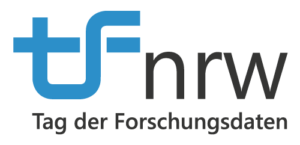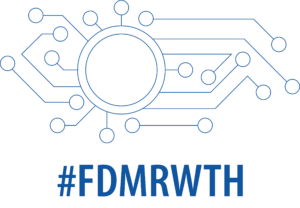Kategorie: ‘Services’
September 1st, 2023 | by
Kaulbach, Lina-Louise
Germany is getting a new National Data Strategy – this was decided by the Federal Cabinet on August 30, 2023. The new strategy “Progress through data use – Strategy for more and better data for new, effective and forward-looking data use” is intended to build on the existing data strategy from 2021 and promote the development and expansion of data competencies.
Read the rest of this entry »
Kategorie: Allgemein, Informationen & Beratung
No Comments »
August 24th, 2023 | by
Ujkani, Arlinda
(Research) data are the basis of decisions and are becoming more and more important with today’s technologies and possibilities. Thus, the correct management and publication of research data is also taking on an increasingly important role. Two central concepts in this context are archiving and publishing research data. But what exactly do these concepts mean and how do they differ in the research process? In this article, we take a close look at the differences between archiving and publishing research data.
Read the rest of this entry »
Kategorie: Allgemein, An der RWTH, From the practice, Informationen & Beratung, IT-Services, RWTH Best Practices
No Comments »
August 17th, 2023 | by
Kaulbach, Lina-Louise

Source: Heike Lachmann
Attention doctoral candidates and postdocs: The Center for Young Academics (CYA), together with the Vice-Rector for Human Resources Management and Development and Young Academics, Professor Sabine Brück-Dürkop, invites you to the annual Young Academics Day on August 31, 2023. This time, the event will take place on site in Aachen. The RDM team will also be there and will present the RDM tools and services. Read the article to find out more about the event.
Read the rest of this entry »
Kategorie: Allgemein, An der RWTH, FDM-Team unterwegs, Informationen & Beratung
No Comments »
August 10th, 2023 | by
Kaulbach, Lina-Louise
Do you want to make progress with your data and draw valuable conclusions from it? Then attend the event “Python Computing 4 Chemists (and others)” from 18 to 20 September 2023 and improve your programming skills in person on-site in Aachen or online.
Read the rest of this entry »
Kategorie: Allgemein, An der RWTH, Informationen & Beratung
No Comments »
August 3rd, 2023 | by
Kaulbach, Lina-Louise
Data stewards, RDM responsible persons and researchers of RWTH Aachen University pay attention: On August 16, 2023, our summer lunch and networking event will take place in Aachen, to which we cordially welcome you. Our summer break is over, we brave the rain and look forward to seeing you again. You can find out all the information about getting to know each other and having lunch at the RDM network meeting in this article.
Read the rest of this entry »
Kategorie: An der RWTH, FDM-Team unterwegs, Informationen & Beratung
No Comments »
July 27th, 2023 | by
Kaulbach, Lina-Louise
On 14 November 2023, the Research Data Day in NRW will celebrate its third birthday. This year, the motto is “Promoting and refining data: Bring your data treasure to light”. As in previous years, the RDM team at RWTH Aachen University will also be taking part in this state-wide day of action with an interesting afternoon programme. Make a note of the day now and celebrate with us!
Read the rest of this entry »
Kategorie: Allgemein, An der RWTH, Informationen & Beratung
No Comments »
July 13th, 2023 | by
Kaulbach, Lina-Louise
Do you already have plans for September? How about a two-day workshop on Research Data Management, or RDM for short, in science and technology with a special focus on the concept of data stewardship? We have compiled the info for you.
Read the rest of this entry »
Kategorie: Informationen & Beratung
No Comments »
In May, the virtual dialogue platform pid-network.de and the social media channels on Mastodon and Twitter went online to provide information on developments around the topic of persistent identifiers (PID). Behind this is the project PID Network Germany, which was launched in March and which we would like to introduce in our new blog post.
Read the rest of this entry »
Kategorie: Allgemein, Informationen & Beratung
No Comments »
June 9th, 2023 | by
Ujkani, Arlinda

Source: Coscine
On May 31, 2023, Coscine was presented as part of the Coffee Lecture series of the Thuringian Competence Network for Research Data Management. This time, everything revolved around the topic of “FAIR research data management (RDM) from the very beginning”. Coscine offers an innovative solution for storing, managing and archiving research and metadata. The goal is to support researchers in their work and to promote collaboration across organizational boundaries. Learn how fair RDM works in Coscine and how Coscine can be used in this blog post.
Read the rest of this entry »
Kategorie: An der RWTH, Informationen & Beratung, Services, Use Cases
No Comments »














